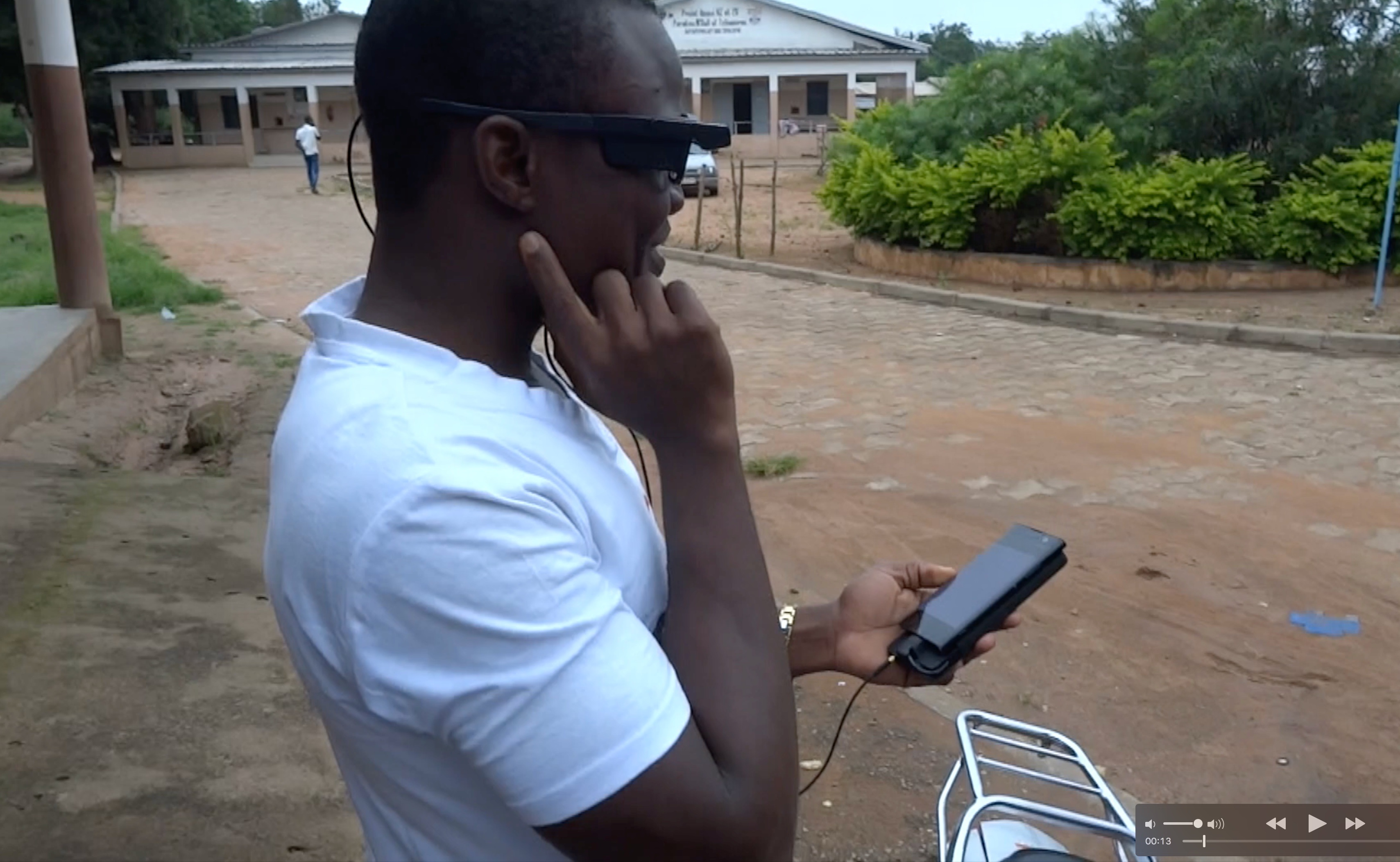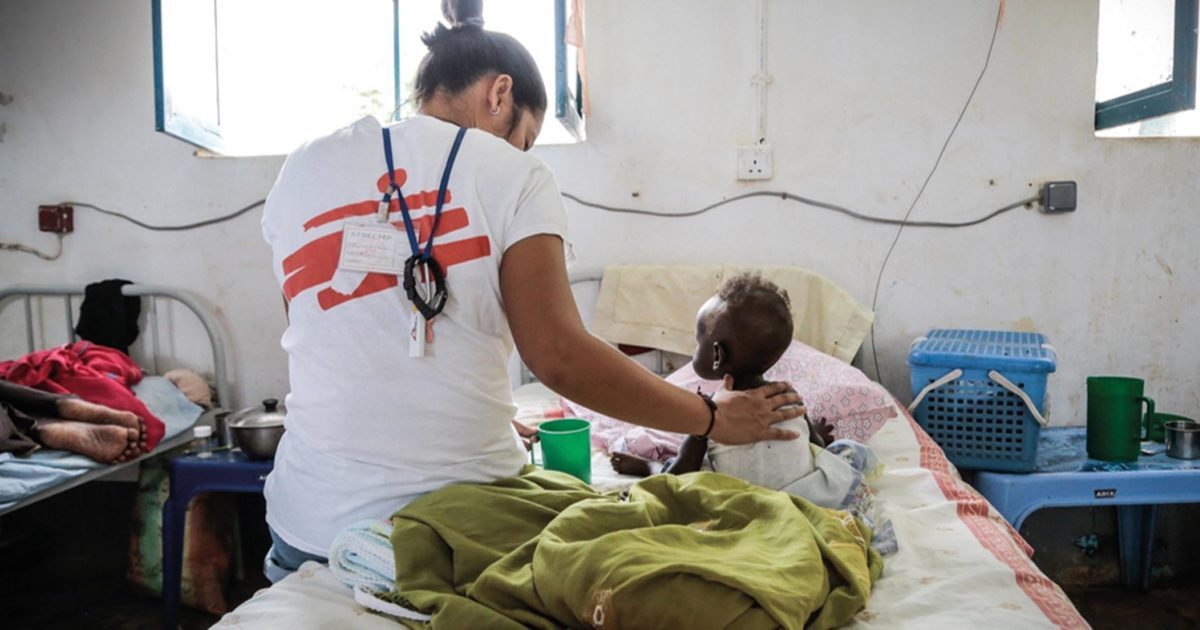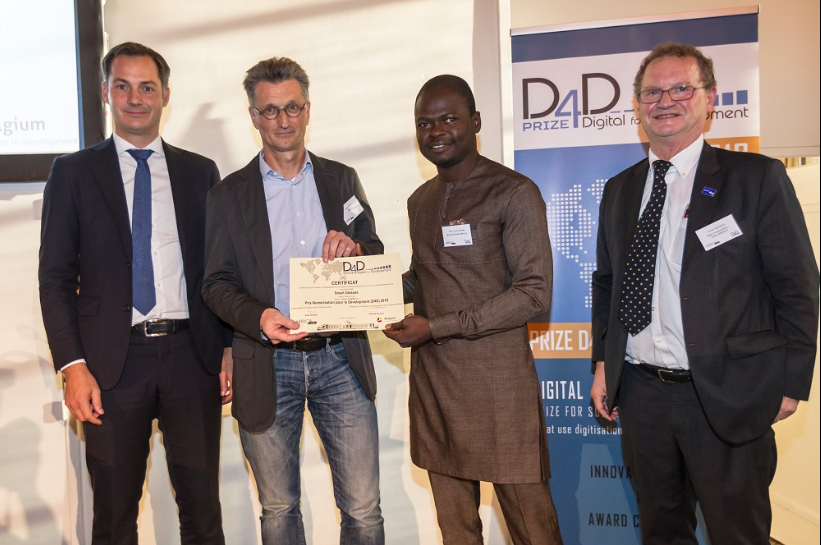Iristick develops, builds and sells state-of-the-art smart safety glasses for industrial and commercial applications. Yet, using this disruptive innovation to create social impact has been embedded in the company’s mission from the very beginning. As smart glasses are a key technology for supporting remote assistance, lots of use cases in the social ecosystem are possible. The sustained effort now appears to be gaining some traction.
Iristick was awarded the Humanitarian Grand Challenge Canada grant, Creating Hope in Conflict, launched by USAID and DFID. Doctors Without Borders decided to pilot test Iristick smart glasses for remote field worker support during operations in difficult and precarious areas. And recently, Iristick was shortlisted for the Digital 4 Development (D4D) Prize, supported by Deputy Prime Minister and Minister for Development Cooperation, Digital and Telecom, Alexander De Croo, for a project enabling local workers in Benin to get real-time support from experts in Belgium for hospital infrastructure maintenance.
https://humanitariangrandchallenge.org

SMART IS THE NEW SEXY
Technology runs our lives these days. Smartphones, tablets and computers; we really can’t seem to function without them. As more existing technologies are combined and developed into something greater, consumers and businesses alike can expect to see opportunities expand with future technology. Technology will be faster, will have the ability to accomplish more and everything will become more streamlined, making it easier to get work done.
One of these emerging technologies is remote assistance and streaming video through the use of smart glasses. The founders of Iristick immediately saw the immense potential for industry, but also for social purposes. This could be a combination of many things – providing access to (remote) expertise, addressing health or care needs, helping people to make more informed decisions, collecting and streaming data and images in remote areas hands-free, and guiding less skilled people in properly executing their jobs.
HUMANITARIAN GRAND CHALLENCE
The U.S. Agency for International Development (USAID) and the Department for International Development (DFID) of the UK announced the finalists for Creating Hope in Conflict: A Humanitarian Grand Challenge Canada, at a side event of the UN General Assembly in September 2018 in New York City.
Iristick has been selected as one of 23 finalists out of a pool of 615 applicants from around the world for their work on testing smart glasses that allow local health care workers in the Democratic Republic of Congo to receive real-time medical expertise remotely from doctors. The grant of CAD 250,000 will be used to implement the Proof of Concept in 2019.
Steven Serneels (Chairman of the Iristick Board) of Iristick commented: “While breakthrough tech innovations such as Iristick smart glasses are great for Industry, they can, at the same time, also mean so much for society, addressing pressing societal needs such as creating access to high-quality, affordable health care by leveraging the expertise of doctors in remote areas in the field of e-health.”
DOCTORS WITHOUT BORDERS
After testing the functionality and bandwidth of Iristick smart glasses in their lab in Brussels, Doctors Without Borders enthusiastically decided to purchase Iristick glasses to pilot test them in Kunduz, Afghanistan in order to provide maintenance and technical support to local operators through remote experts.

SHORTLIST LAUREATE OF THE DIGITAL FOR DEVELOPMENT PRIZE (D4D)
'Prize Digital for Development (D4D)' is an initiative of the Royal Museum of Central Africa in line with the policy priorities of Belgian Ministry of Development to use digitization and (new) technologies as a lever for development. Prize D4D focuses on digital creativity and innovation in the Belgian Development sector and has the support of Minister Alexander De Croo, whose portfolio includes responsibility for both 'Development Cooperation' and the 'Digital Agenda'.
Together with African Drive, Iristick submitted a project consisting of a pilot in Benin, West Africa, for assisting local workers in real time in their maintenance of the infrastructure of the zone-hospital Saint-Martin in Papané, Tchaourou.
